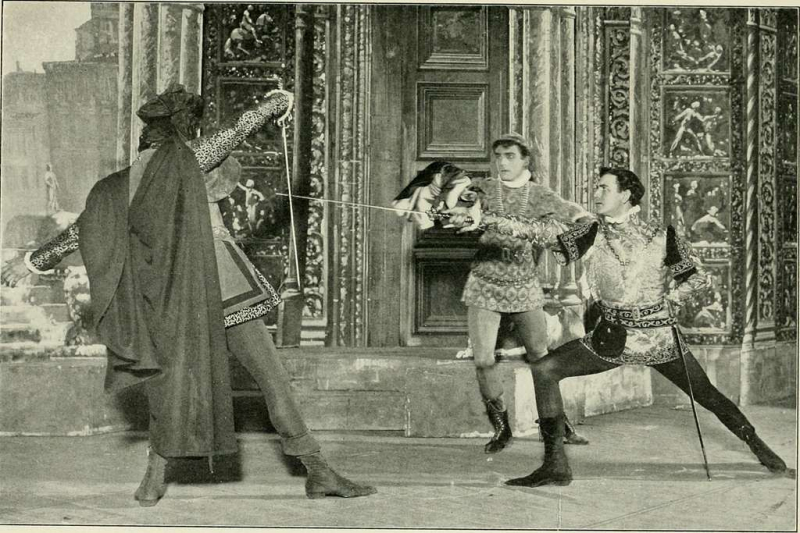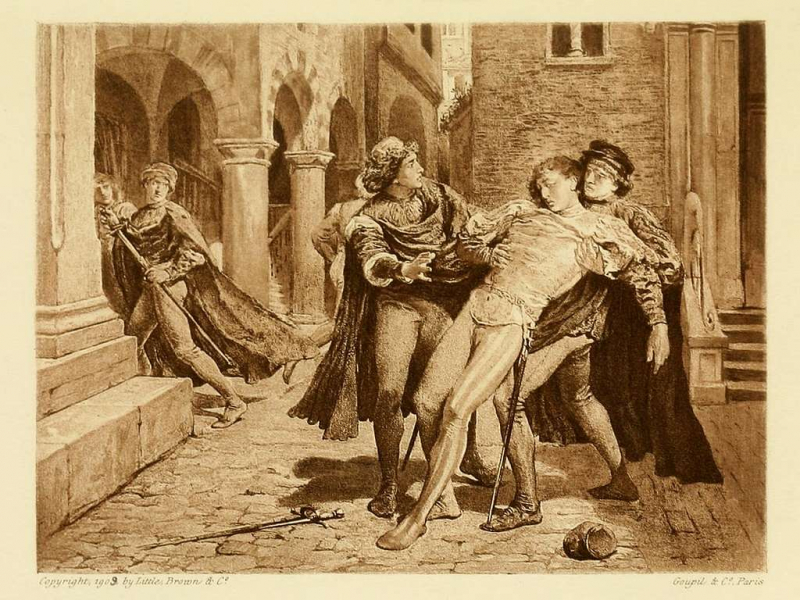Why does Mercutio fight Tybalt?
Act III, scene I: Romeo is called a "villain" by Tybalt, who is itching for a battle. Romeo, however, who now views Tybalt as kin after secretly marrying Juliet, turns the other cheek. Romeo dismisses the insult and replies to Tybalt's cruel behavior with cool, albeit mysterious, words of love:
I do protest I never injured thee,
But love thee better than thou canst devise
Till thou shalt know the reason of my love. (III.i.65–67)
Tybalt's remarks enrage Mercutio, Romeo's close friend, who dares him to a duel instead. Mercutio sees Romeo's kindness and his refusal to fight Tybalt as "dishonorable, vile submission" (III.i.70). Angered by his friend's seeming lack of dignity, Mercutio intervenes to protect Romeo's standing.
Unfortunately, this confrontation leads to a terrible chain of events in which Mercutio is severely injured by Tybalt. After Mercutio's death, the rivalry between the Capulets and Montagues grows stronger, ultimately affecting the play's tragic conclusion.
It is noteworthy that, despite being forbidden, dueling was popular in Shakespeare's England. Young men, especially those of the aristocratic class, felt compelled to defend their honor and the honor of their friends and relatives against any insults. Because of this obsession with honor, small insults might easily escalate into deadly fights. According to Lawrence Stone, a well-known early modern English historian, "tempers were short and weapons were easy to hand."

















